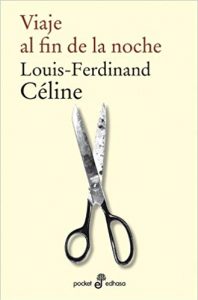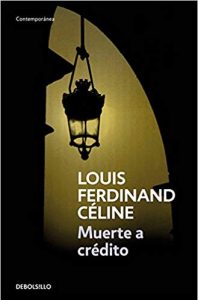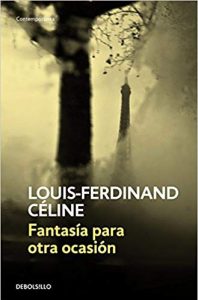In that literature that understands the exalted as an exercise of formal sophistication, erudition and to be able to be argumentative depth towards the existential, Marcel Proust it would be one of its strongest pillars. Especially in a twentieth century precisely given to rescue in the literary the best of a civilization that showed its worst known face in that last century, remembered for its wars (in addition to serious global threats) with weapons of great destruction.
Of course, each author first sits in the chair among his own. And so CélineAn immediate French literary descendant, he was the gifted student who at times surpassed the teacher in some of his most significant works.
But as a differential fact in the case of talso doctor Louis Ferdinand Céline, It should be noted that his prose ends up getting closer to that background previously cited to Emil cioran than Proust. It must be a matter of the fatalism typical of so many other doctors involved in writers of the near twentieth century such as Pio Baroja o Chekhov.
Adventurer in its most vital sense, wounded in war, practicing doctor and married on several occasions, Céline poured into his literature that emerged unexpectedly in his thirties, not only intense impressions and deep ideas but also part of his rich experiences.
Céline's Top 3 Recommended Novels
Journey to the end of the night
The analogy with Proust was soon sought in this novel made existential blog filled with experiences and adorned with longings, perhaps wishes or guilt ... all that imaginary that an author overturns when he confesses that a work has a biographical part.
And perhaps the problem was that, the lackluster interest in cataloging from the previous. Because in some way this novel surpasses aspects of «In Search of Lost Time», not in the monumental nature of its construction, in its representation of a work of fiction made almost a perfect reflection of life as a hyper-realistic painting, but at least in that realism approached with the greatest strength of what is true per se, of what was recovered black on white from life itself to end up adorning it with that brilliant story of the great writer. Because this book has that Homeric point of transcendent travel to the end of the night or to the very center of the human soul, with its darkness and possible sunrises.
The protagonist Ferdinand Baradamu travels through the world loaded with strong will and intense despair, his firm and tense contradictions counterbalance the nature of the human being. The notion of so many spaces actually inhabited by the author ends up making this novel a fascinating work to taste like that large bottle open for the occasion. With the advantage that it can be reopened and reread to discover new nuances at different times of the reader's life.
Death on credit
With an already more popular patina even at times in its language -something necessary due to the evident setting in humble neighborhoods-, this second novel, written in its good years after its overwhelming irruption (controversy included) in the world of literature, evokes the humanity from survival.
Because Céline is aware, like any writer endowed with that essential observing ability to uncover the ultimate truths, that only the characters peering into the abyss know that they live. Things exist by their opposites in this world. Happiness is only enjoyed when it comes, having known sadness. Humanity is only known, as the inherent goodness of the term, when it suffers from another humanity capable of inflicting damage for its own sake.
The most bitter humor, the laugh with echoes of defeat, is only enjoyed when you know how to accept that you are a wimp, whether you are a king or a vassal (only that the vassals find out earlier and that is why they can laugh more bitterly). Of course, the first-person narrator makes us share in the great discoveries from the small pleasures that are officially denied in high moral spheres. The flesh, the sex, the delivery to the hedonism of a protagonist who, rather than advancing through life, wanders eager to assault what he can, to unleash his passions made vice. The rest, of the passing of his days between vague formations and simple jobs for him is the other skin of the loser who knows himself to be dying sooner rather than later.
Fantasy for another occasion
One of the greatest contrasts in Céline's work appears in the contrast between the brilliance of the prose, the fit of the words, the richness of the lexicon when it is set precisely like a jewel with the meaning sought ..., all this as I say in contrast to that sense of defeat, of the soul of a loser that the viewing of this novel impresses, with a new point of distorted biography, in an effort to present the worst as the worst without qualms.
There is no sublimation or resilience, just that fascinating contrast between the beauty of language and the rottenness of human misery. With reflections inserted here and there (which at times distract from the fictionalized essence of the plot) we are told about the world that the protagonist goes through between wars where only defeat and misery transcend, in prisons through which he passed in the bitter return to the house of someone who has already lost his soul and knows himself condemned to his almost spiritual inertia, never to find rest or hope.



